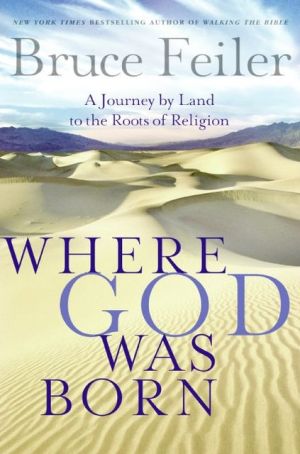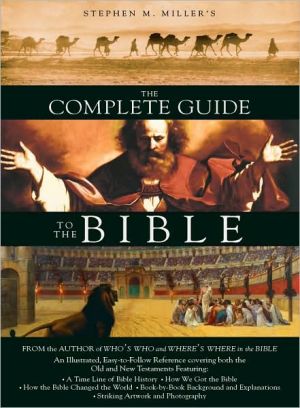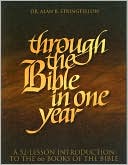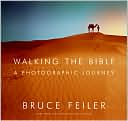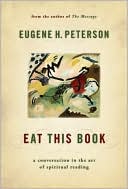Where God Was Born: A Journey by Land to the Roots of Religion
Where God Was Born combines the adventure of a wartime chronicle, the excitement of an archaeological detective story, and the insight of personal spiritual exploration. Taking readers to biblical sites not seen by Westerners for decades, Bruce Feiler's journey uncovers little-known details about the common roots of Judaism, Christianity, and Islam, and affirms the importance of the Bible in today's world.\ Where God Was Born is a daring quest that offers a rare, universal vision of God that...
Search in google:
At a time when America debates its values and the world braces for religious war, Bruce Feiler, author of the New York Times bestsellers Walking the Bible and Abraham, travels ten thousand miles through the heart of the Middle East—Israel, Iraq, and Iran—and examines the question: Is religion tearing us apart ... or can it bring us together?Where God Was Born combines the adventure of a wartime chronicle, the excitement of an archaeological detective story, and the insight of personal spiritual exploration. Taking readers to biblical sites not seen by Westerners for decades, Feiler's journey uncovers little-known details about the common roots of Judaism, Christianity, and Islam, and affirms the importance of the Bible in today's world.In his intimate, accessible style, Feiler invites readers on a never-in-a-lifetime experience: Israel Feiler takes a perilous helicopter dive over Jerusalem, treks through secret underground tunnels, and locates the spot where David toppled Goliath. Iraq After being airlifted into Baghdad, Feiler visits the Garden of Eden and the birthplace of Abraham, and makes a life-threatening trip to the rivers of Babylon. Iran Feiler explores the home of the Bible's first messiah and uncovers the secret burial place of Queen Esther. In Where God Was Born, Feiler discovers that at the birth of Western religion, all faiths drew from one another and were open to coexistence. Feiler's bold realization is that the Bible argues for interfaith harmony. It cannot be ceded to one side in the debate over values. Feiler urges moderates to take back the Bible and use its powerful voice as a beacon of shared ideals.In his most ambitious work to date, Bruce Feiler has written a brave, uplifting story that stirs the deepest chords of our time. Where God Was Born offers a rare, universal vision of God that can inspire different faiths to an allegiance of hope. Publishers Weekly Mixing archeological history with war story, Feiler journeys the length and breadth of the modern Middle East, in search of the final word about religion's efficaciousness. Feiler's understated voice underscores the drama of his tale. The sober, measured tones and the occasionally scratchy timbre of his voice emphasize the personal aspect of his book, which is part biblical exegesis and part study of religion's impact on contemporary life. Feiler's work ranges from studying the less savory aspects of the legacies of Israelite kings David and Solomon to touring Iraqi archeological sites under the watchful eye of the postinvasion U.S. Army. The audiobook bookends its chapters with swirls of orchestral music, adding a nice touch and playing up the inherent archaic romance of Feiler's story. The production as a whole might have benefited, though, from a reader with slightly more gravitas than the author can provide. Feiler acquits himself honorably, but a professional reader might have more capably teased out the book's aura of drama past and present. Simultaneous release with the HarperCollins hardcover (Reviews, July 11). (Sept.) Copyright 2005 Reed Business Information.
Where God Was Born\ A Journey by Land to the Roots of Religion \ \ By Bruce Feiler \ HarperCollins Publishers, Inc.\ Copyright © 2005 Bruce Feiler\ All right reserved.\ ISBN: 0060574879 \ \ \ Chapter One\ \ Man of Blood\ \ Razor wire is made up of thin metal twine with small sharp barbs every few inches that is twirled into coils about two feet in diameter, then bundled outside fences, roofs, and doorways like a lethal scarf. Razor wire is so ubiquitous in Israel it could almost be the national flower. It even looks like a shrub, the way it twists and turns, catches plastic bags and soda bottles in its web, and rubs against civilization like poison ivy on a playground. Whenever I see a bundle, I imagine myself making a daring escape through its coils. Then I see myself slipping, my leg catching in the tangle, tearing, then blood, and the disappointment of failure. Razor wire is barbed wire with a greater power to intimidate.\ It does have one unexpected benefit, though. The airiness of its coils allows just enough light to get through so that if you leave it for a while, at, say, the checkpoint between Jerusalem and Bethlehem, a sprout of yellow daisies can take root in the desert and pop up through the fear.\ Razor fences are not the only impediment to traveling the six miles from Jerusalem to Bethlehem. There is also, on this chilly morning, the Israeli Army, the Palestinian security forces, and a border so volatile that Avner couldn't traverse it. He left me at a long line of cars to walk along a cliff with a few Italian tourists in wheelchairs, through a checkpoint armed with Israeli teenagers, into a gamut of taxi drivers so desperate for business one actually looked hurt when I passed him by. "Why are you angry?" he shouted.\ Moments later Arlet Odeh sped up in a white Mercedes. She was thirty years old, with dangling curls, a hawk nose, and deep bags under her eyes that came more from lack of hope than from lack of sleep. Arlet was also a tour guide with no tours to guide. For three years she hadn't worked. Her father is old, she said, her mother ill. They are one of only one hundred Palestinian Christian families left in town. "We are living in a cage," she said. "But living means having a life. I have no life. Would you like to see where Jesus was born?"\ "Actually, on this trip, I'm interested in King David."\ She brightened. "He was born here, too!"\ We headed toward the center of town. The cobblestone streets, repaved when Pope John Paul II visited for the bimillennium of Jesus' birth, were deserted, shops boarded up, few people in sight. Though Christmas was still months away, a pale plastic wreath and faded star dangled from the side of the road.\ Bethlehem is one of the few cities that appears across the entire two-thousand-year arc of the Hebrew Bible, from the patriarchs to the prophets. The city is first mentioned in Genesis as the place where Jacob's wife Rachel died after giving birth to Benjamin. A tomb marks the spot, which we passed on our way into town, fenced in, empty. Joshua later assigns the area to the tribe of Judah, and it's frequently mentioned during the period of the kings, most prominently as the birthplace of King David. The story of the boy warrior who becomes the king of Israel lords over the early books of the Prophets and introduces what will become a major theme of the second half of the Hebrew Bible: the Israelites' quest to find proper balance between their spiritual identity as an ethically minded people of God and their political identity as a nation strong enough to survive in a region of superpowers.\ After the lightning conquest described in the Book of Joshua, the biblical story quickly becomes diffuse, even chaotic. The Book of Judges describes an awkward transition as the people settle the land and try to determine their political leadership. The preeminent fact of the Israelites' existence is that, unlike their neighbors, they don't have a monarch. Four times the text says, "In those days there was no king in Israel," adding, "every man did what was right in his own eyes." For two hundred years, their leaders are judges, including Ehud, Gideon, and Samson, from the Hebrew word sopet, which adds the theological element of divination to the more legalistic English term. The authority of the judges comes from God, the ultimate sopet, and their principal task is to ensure that the people uphold the Laws of Moses.\ But the people are not satisfied, especially as they are repeatedly trounced by the Philistines, the new power along the coastal plain. Samuel, the reigning judge at the time, gathers the Israelites and leads a comeback. But the people still feel insecure and, around 1020 B.C.E., parade en masse to an aging Samuel: "Appoint a king for us, to govern us like all other nations." In a classic case of "Throw the bums out!" they declare they are not happy being ruled exclusively by God; they want more competent, secular leadership based on sound economics and a strong military.\ We have reached a familiar moment, when the crabby wandering people of the desert become the surly settled people of the land. The Israelites are never happy. In the Sinai they gripe about the lack of food and poor leadership and demand to be sent back into slavery; in the Promised Land they gripe about their lack of power and poor leadership and demand to be subjected to a king. In both cases, Israel lives up to its namesake, Ysra'el, one who wrestles with God.\ And God, as he has done before, lashes out: "Me they have rejected as their king." Still, he grants the request but asks Samuel to warn them of their mistake. Samuel's speech is one of the most prophetic in the Bible. A king, he says, will take your sons and sacrifice them in battle, take your daughters and make them perfumers, cooks, and bakers. He will seize your choice . . .\ \ Continues...\ \ \ \ Excerpted from Where God Was Born by Bruce Feiler Copyright © 2005 by Bruce Feiler.\ Excerpted by permission.\ All rights reserved. No part of this excerpt may be reproduced or reprinted without permission in writing from the publisher.\ Excerpts are provided by Dial-A-Book Inc. solely for the personal use of visitors to this web site. \ \
Introduction : be strong and very courageous1Bk. ILand1Man of blood352Your throne shall be established forever603The house of the Lord91Bk. IIExile1In the Garden of Eden1252Come, let us build us a city1573By the rivers of Babylon1814City of peace2105A future with hope239Bk. IIIDiaspora1Let there be light2672His anointed one2943A crown of beauty320Conclusion : with gladness and joy343O give thanks383Words of peace and truth387
\ From Barnes & NobleBruce Feiler's 10,000-mile quest for the roots of Judaism, Christianity, and Islam took him to some of the bloodiest trouble spots in the Middle East. In Iraq, he writes, "By far the most dangerous thing we did on any day was drive. One doesn't quite realize how fragile law and order is until one tries to get from one place to another." Part wartime chronicle, part archaeological detective story, Where God Was Born explores the wisdom of faith in the very region where it seems to be source of all conflict.\ \ \ \ \ Publishers WeeklyMixing archeological history with war story, Feiler journeys the length and breadth of the modern Middle East, in search of the final word about religion's efficaciousness. Feiler's understated voice underscores the drama of his tale. The sober, measured tones and the occasionally scratchy timbre of his voice emphasize the personal aspect of his book, which is part biblical exegesis and part study of religion's impact on contemporary life. Feiler's work ranges from studying the less savory aspects of the legacies of Israelite kings David and Solomon to touring Iraqi archeological sites under the watchful eye of the postinvasion U.S. Army. The audiobook bookends its chapters with swirls of orchestral music, adding a nice touch and playing up the inherent archaic romance of Feiler's story. The production as a whole might have benefited, though, from a reader with slightly more gravitas than the author can provide. Feiler acquits himself honorably, but a professional reader might have more capably teased out the book's aura of drama past and present. Simultaneous release with the HarperCollins hardcover (Reviews, July 11). (Sept.) Copyright 2005 Reed Business Information.\ \ \ Library JournalAuthor and journalist Feiler has made something of a cottage industry out of the spiritual/biblical travelog, from Walking the Bible to Abraham to this work, which loosely picks up biblically where Walking leaves off-that is, with Joshua set to enter the land of Canaan. Coupled again with the late archaeologist Avner Goren, Feiler travels the land querying issues of conquest, autonomy, ethnic identity, and ultimately, what it means to be an Israelite without a land (his work ends with the rising influence of Hellenism and pressures from Christianity on diaspora Judiasm). Known as something of a word maven, Feiler does not fail to conjure up grandiose verbal images here, referring to Hanukkah as "a way for Jews to participate in the American sport of competitive consumption" and remarking on Babylon's lack of a "huggable hero." He engages Christian as well as Muslim religiosity along the way, broaching issues of religious and ethnic violence and animosity (with no real resolution). If Feiler's previous works are popular in your collections, then you'll want this quick and readable one, too. [See Prepub Alert, LJ 5/15/05.]-Sandra Collins, Duquesne Univ. Lib., Pittsburgh Copyright 2005 Reed Business Information.\ \ \ \ \ Kirkus ReviewsFeiler (Walking the Bible, 2001, etc.) travels to Israel, Iran and Iraq to learn if religion inevitably gives rise to violence, or if it is a seedbed of peace. If you've read Feiler's earlier books, you know the formula: he heads to the Middle East, teams up with great archeologists who show him the sites, conducts a bunch of interviews and ruminates about the Bible. Here he travels to Israel, where he chats with a novelist who's written about King David; to Iraq, where, by the rivers of Babylon, he reflects on vengeance and redemption; and to Iran, where he interviews a leader of the Zoroastrian community about what wisdom Zoroastrianism has to offer the modern world. ("Be calm. Be beautiful. And above all, be good," sums up the leader's advice.) The author's account of war-torn Iraq will likely rivet readers. "By far the most dangerous thing we did on any given day was drive," he writes. "One doesn't quite realize how fragile law and order is until one tries to get from one place to another in a vigilante nation." Feiler mixes a little autobiography into the story, even touches on his own changing relationship with organized religion. Unsurprisingly, he comes away from his peregrinations optimistic about the possibility that peace will come from religion yet, and he denounces religious extremists who contort Scripture to serve their own ends. Most of his grand conclusions are anodyne: Gods needs us to be his co-creators, religious journeys have no real end. If such musings don't seem adequate to the task of unsnarling the knot of religion and violence, they will nonetheless leave readers with a warm fuzzy feeling. Feiler's take on all things biblical is beginning to get tedious.\ \ \ \ \ Booklist"A marvelous account . . . Erudite yet immensely readable, Feiler chronicles a spiritual journey to the roots of Western civilization."\ \
